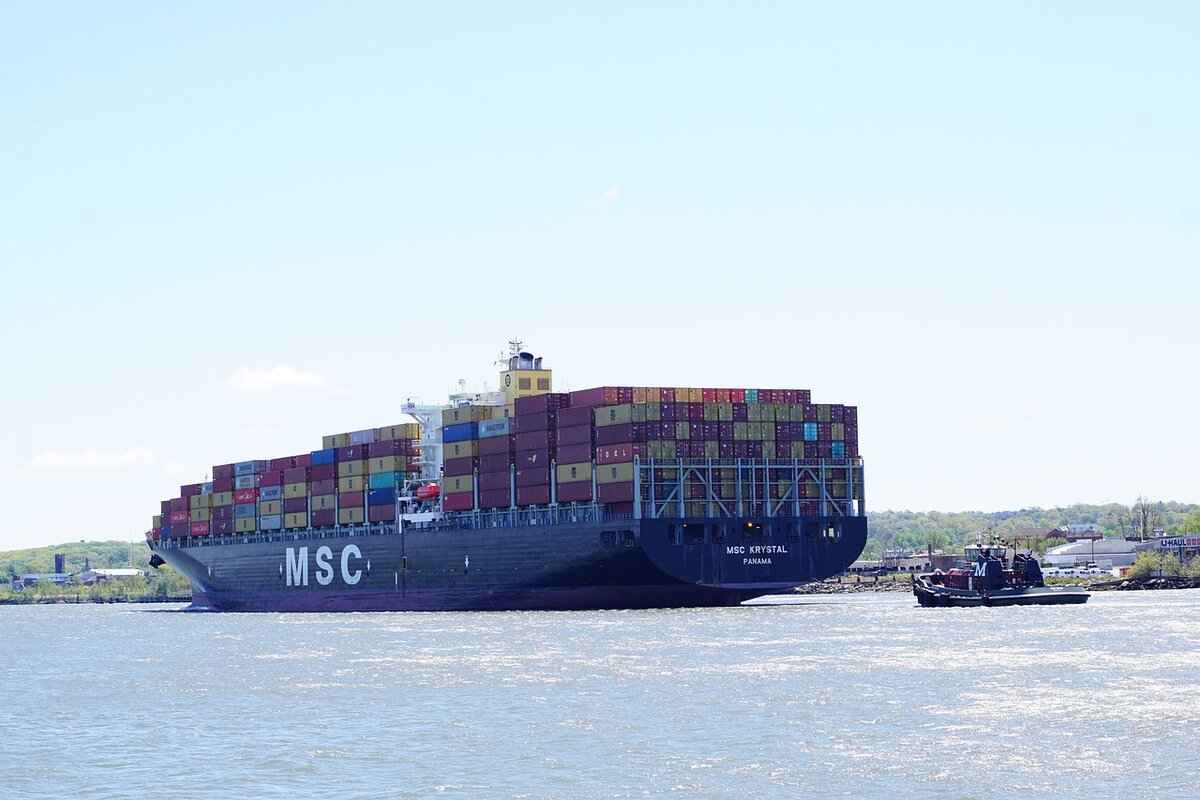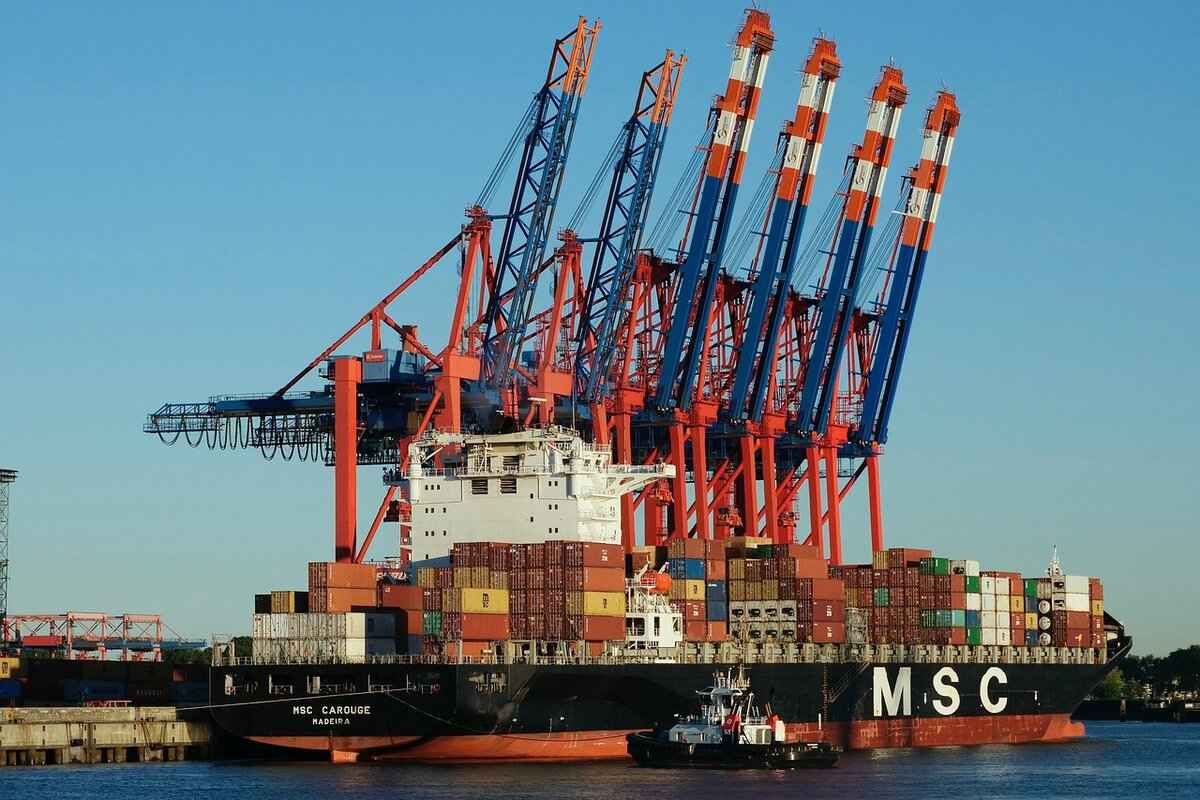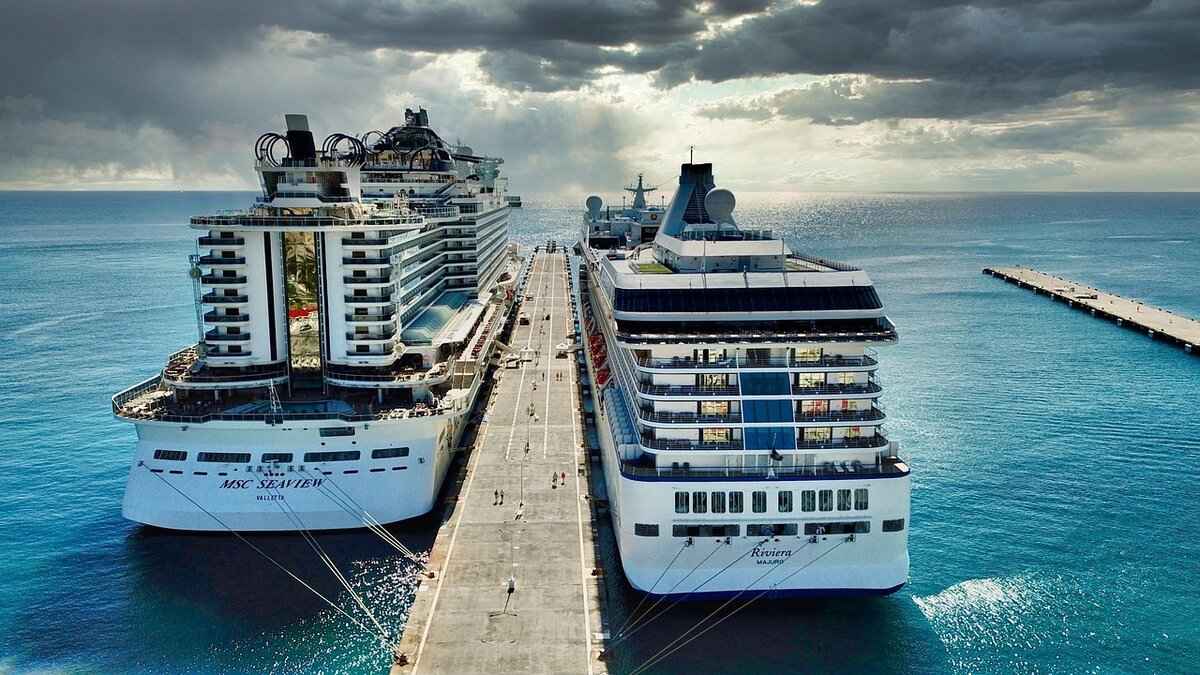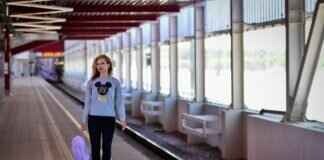This article provides a comprehensive overview of how to interpret the Monitor Integrated Loads Table in MSC Nastran, offering practical insights and expert analysis for effective usage.
Understanding MSC Nastran and Its Applications
MSC Nastran is a powerful finite element analysis (FEA) tool widely utilized across various engineering disciplines. It excels in structural analysis, allowing engineers to simulate and optimize designs under different loading conditions. Its applications span from aerospace to automotive, where precise modeling of structural behavior is crucial. The software aids in identifying potential failure points and enhances design efficiency, making it an invaluable asset in modern engineering workflows.
What is the Monitor Integrated Loads Table?
The Monitor Integrated Loads Table is an essential feature within MSC Nastran, designed to present detailed load data resulting from simulations. This table consolidates various load cases and their corresponding effects on the structure, enabling engineers and analysts to gain a clear picture of how loads interact with the model. Understanding the significance of this table is vital for effective analysis and decision-making in engineering projects.
How to Access the Monitor Integrated Loads Table
Accessing the Monitor Integrated Loads Table is a straightforward process within the MSC Nastran interface. Users can navigate to the output section of their analysis results. Typically, this involves selecting the appropriate analysis run and locating the Output Requests menu. Here, you can specify the inclusion of the Monitor Integrated Loads Table in your results. Following these steps ensures that you have the necessary data at your fingertips for thorough analysis.
Key Components of the Monitor Integrated Loads Table
Understanding the key components of the Monitor Integrated Loads Table is crucial for effective load analysis. The table typically includes:
- Load Cases: Different scenarios under which the structure is analyzed.
- Load Magnitudes: Numerical values representing the intensity of each load.
- Unit Systems: Information on the measurement units used, which is vital for accurate interpretation.
By familiarizing yourself with these components, you can better understand the implications of the data presented.
Interpreting the Data Presented in the Table
Interpreting the data in the Monitor Integrated Loads Table can be complex. It requires a keen eye for detail and a solid understanding of engineering principles. Start by focusing on the numerical values, which represent critical load information. These values indicate how much load each component of the structure is subjected to, allowing for an assessment of safety and performance.
Common Challenges When Using the Monitor Integrated Loads Table
Users often encounter challenges when working with the Monitor Integrated Loads Table. One common issue is data interpretation errors, which can lead to significant mistakes in analysis. It’s important to double-check calculations and ensure that the correct load cases are being analyzed. Additionally, software compatibility issues can arise, especially when integrating results from different versions of MSC Nastran. Understanding these challenges and knowing how to troubleshoot them can enhance your user experience.
Best Practices for Effective Use of the Monitor Integrated Loads Table
Implementing best practices is essential for maximizing the benefits of the Monitor Integrated Loads Table. Regular updates to your software ensure optimal performance and access to the latest features. Furthermore, investing time in training and utilizing available resources will enhance your understanding and proficiency in using MSC Nastran. This proactive approach not only improves your skills but also contributes to more accurate and efficient analyses in your engineering projects.

Understanding MSC Nastran and Its Applications
MSC Nastran is a robust software tool widely utilized in the field of finite element analysis (FEA). Its capabilities extend across various engineering disciplines, making it an essential resource for engineers and analysts. This section delves into the diverse applications of MSC Nastran, highlighting its significance in structural analysis and design optimization.
One of the primary applications of MSC Nastran is in the analysis of structural integrity. Engineers use the software to simulate and evaluate how structures respond to various loads and environmental conditions. This capability is crucial in industries such as aerospace, automotive, and civil engineering, where safety and reliability are paramount. By employing MSC Nastran, engineers can predict potential failure points and make informed decisions to enhance the overall design.
Furthermore, MSC Nastran plays a vital role in design optimization. Through iterative simulations, engineers can explore multiple design variations, assessing their performance under specified conditions. This process not only improves the efficiency of the design but also reduces material costs and development time. For instance, in the automotive industry, engineers can optimize components for weight reduction while maintaining structural performance, leading to improved fuel efficiency and reduced emissions.
The software also facilitates dynamic analysis, allowing engineers to understand how structures behave under dynamic loads, such as earthquakes or wind forces. This analysis is essential for designing buildings and bridges that can withstand natural disasters. MSC Nastran provides tools for modal analysis, which helps in identifying the natural frequencies and mode shapes of structures, thereby informing design modifications to mitigate resonance issues.
In addition to structural applications, MSC Nastran is also utilized in thermal analysis. Engineers can assess heat transfer within structures, which is critical in applications ranging from electronics cooling to thermal insulation in buildings. This capability ensures that designs not only meet structural requirements but also thermal performance standards.
Moreover, MSC Nastran supports multidisciplinary analysis, integrating inputs from various engineering fields. This holistic approach allows for comprehensive evaluations that consider interactions between different physical phenomena, such as fluid-structure interaction (FSI) in aerospace applications. By leveraging MSC Nastran’s capabilities, engineers can achieve more accurate and reliable results, ultimately leading to better product performance.
In conclusion, MSC Nastran serves as a powerful tool that significantly enhances the efficiency and effectiveness of engineering analysis and design processes. Its applications in structural integrity, design optimization, dynamic and thermal analysis, as well as multidisciplinary evaluations, underscore its value in modern engineering practices. By utilizing MSC Nastran, engineers can not only improve their designs but also ensure the safety and reliability of their structures in real-world applications.

What is the Monitor Integrated Loads Table?
The Monitor Integrated Loads Table is an essential component of MSC Nastran, a sophisticated software suite used for finite element analysis (FEA). This table provides engineers and analysts with a comprehensive overview of the loads acting on a structure throughout a simulation. Understanding this table is crucial for interpreting the results of structural analyses and making informed engineering decisions.
In MSC Nastran, the Monitor Integrated Loads Table consolidates load data from various sources, allowing users to visualize and analyze how different loads interact with the structure. This feature is particularly useful in complex simulations where multiple load cases are present, enabling users to track changes in load distribution and magnitude over time.
One of the primary functions of the Monitor Integrated Loads Table is to present load data in an organized manner. The table includes various columns that represent different types of loads, such as static loads, dynamics loads, and thermal loads. Each column provides specific information about the load’s magnitude, direction, and application point. This detailed breakdown helps engineers assess the structural response under varying conditions.
Furthermore, the table allows for easy comparison of load cases. Engineers can quickly identify which load scenarios lead to critical stress points in the structure, thereby facilitating targeted design modifications. For instance, by analyzing the load data, one can determine whether a particular load case results in excessive deformation or stress concentrations, which could compromise structural integrity.
Another significant aspect of the Monitor Integrated Loads Table is its ability to integrate data from multiple analysis types. For example, when performing a dynamic analysis, the table can display the effects of time-dependent loads alongside static loads. This integration is vital for understanding how structures behave under real-world conditions, where loads are rarely constant.
In summary, the Monitor Integrated Loads Table in MSC Nastran is not just a data presentation tool; it is a powerful resource for engineers. By providing a clear and detailed view of load interactions, it enhances the ability to make informed decisions in structural design and analysis. Understanding how to interpret this table is a key skill for any engineer looking to leverage the full capabilities of MSC Nastran.

How to Access the Monitor Integrated Loads Table
Accessing the Monitor Integrated Loads Table is a crucial step for engineers and analysts working with MSC Nastran. This table provides essential insights into the integrated loads acting on your model, allowing for effective analysis and decision-making. Below, we will explore the steps to locate and open this table within the MSC Nastran interface.
- Step 1: Launch MSC Nastran – Begin by opening the MSC Nastran software on your computer. Ensure that you have the appropriate project loaded where you want to analyze the integrated loads.
- Step 2: Navigate to the Results Section – Once your project is open, look for the ‘Results’ section in the main menu. This section is where all output data is organized, including load tables.
- Step 3: Locate the Monitor Integrated Loads Table – Within the Results section, you will find various options for viewing different types of data. Look specifically for the option labeled ‘Monitor Integrated Loads Table.’ This may sometimes be under a submenu such as ‘Load Analysis’ or ‘Post-Processing’.
- Step 4: Open the Table – Click on the ‘Monitor Integrated Loads Table’ option. The table will be displayed, showing various load cases and their corresponding values. This is where you can begin your analysis.
- Step 5: Customize Your View – Depending on your analysis needs, you may want to customize the view of the table. MSC Nastran often allows users to filter or sort data according to specific criteria, making it easier to focus on the relevant information.
Why is Accessing the Monitor Integrated Loads Table Important?
Understanding how to access the Monitor Integrated Loads Table is essential for effective engineering analysis. This table not only provides numerical data but also helps in visualizing how loads are distributed across your model. By accessing this table, you can:
- Identify Critical Load Cases: Knowing which load cases are most significant helps in prioritizing your analysis efforts.
- Assess Structural Integrity: The data in the table can reveal potential weaknesses in your design, allowing for timely adjustments.
- Enhance Decision-Making: Accurate load data leads to better-informed decisions regarding design modifications and optimizations.
In summary, accessing the Monitor Integrated Loads Table in MSC Nastran is a straightforward process that can significantly enhance your analysis capabilities. By following the outlined steps, you can efficiently locate and utilize this vital resource to improve your engineering projects. Regular practice with this feature will also build your familiarity, enabling quicker and more effective use in future analyses.

Key Components of the Monitor Integrated Loads Table
Understanding the key components of the Monitor Integrated Loads Table is crucial for engineers and analysts working with MSC Nastran. This table serves as a vital resource, providing detailed insights into the loads acting on structures during simulations. By breaking down the main elements of this table, we can appreciate their relevance to load analysis in engineering projects.
- Load Cases: The Monitor Integrated Loads Table categorizes data into various load cases, which represent different scenarios under which a structure may be analyzed. Each load case is critical for understanding how specific conditions affect structural integrity. For instance, static loads, dynamic loads, and environmental factors can all be represented as separate load cases, allowing for a comprehensive analysis.
- Load Magnitudes: Each load case displays the magnitude of the loads applied to the structure. These numerical values are essential for determining the overall performance and safety of the design. Engineers must pay close attention to these magnitudes to ensure that they fall within acceptable limits for the materials and design specifications.
- Unit Systems: The Monitor Integrated Loads Table utilizes specific unit systems to present load data. Understanding these units is vital for accurate interpretation. Common units include Newtons for force, Pascals for pressure, and kilograms for mass. Engineers must ensure they are familiar with these units to avoid misinterpretation of the results.
- Load Distribution: Analyzing how loads are distributed across a structure is another critical component. The table provides insights into whether loads are concentrated in specific areas or evenly distributed. This information is key for identifying potential failure points and ensuring that the design can withstand the applied loads.
- Time History Data: For dynamic analyses, the Monitor Integrated Loads Table may include time history data, which illustrates how loads change over time. This is particularly important in applications such as seismic analysis or dynamic loading scenarios where load variations can significantly impact structural behavior.
The significance of each component cannot be overstated. Load cases provide the framework for analysis, while load magnitudes and distributions inform engineers of the stresses their designs will encounter. By understanding these components, professionals can make informed decisions that enhance the safety and performance of their projects.
Moreover, the unit systems used in the table are fundamental to ensuring consistency and accuracy in engineering calculations. Engineers should always verify that they are interpreting data in the correct units to avoid costly mistakes.
In summary, the Monitor Integrated Loads Table is an indispensable tool in MSC Nastran that aids engineers in understanding the complexities of load analysis. By familiarizing themselves with its key components, professionals can leverage this information to optimize designs, ensure safety, and enhance the overall efficiency of their engineering projects.
Load Cases Explained
Load cases are essential for accurately interpreting the Monitor Integrated Loads Table in MSC Nastran. They represent the various conditions under which a structure is analyzed, allowing engineers to assess how different loads affect the performance and integrity of a design. Understanding load cases is crucial for engineers and analysts as they provide context for the data presented in the table, ultimately guiding decision-making in engineering projects.
What Are Load Cases?
Load cases are specific scenarios that define the types and magnitudes of loads applied to a structure during analysis. These loads can be categorized into several types, including:
- Static Loads: Constant forces that do not change over time, such as the weight of the structure itself.
- Dynamic Loads: Time-varying forces, including those caused by wind, earthquakes, or moving vehicles.
- Thermal Loads: Stresses induced by temperature changes, which can cause expansion or contraction in materials.
- Impact Loads: Sudden forces that occur due to collisions or other rapid events.
Each load case is defined by its unique parameters, which can include the direction, magnitude, and duration of the load. By analyzing various load cases, engineers can predict how a structure will behave under different conditions, ensuring safety and performance.
How Load Cases Influence the Monitor Integrated Loads Table
The Monitor Integrated Loads Table compiles data from multiple load cases, presenting a comprehensive view of the loads acting on a structure. Each load case contributes to the overall analysis, and the results displayed in the table reflect the combined effects of all defined cases. For instance:
- Comparative Analysis: By reviewing different load cases side by side, engineers can identify which scenarios impose the greatest stress on the structure, allowing for targeted design improvements.
- Load Combinations: The table may also display results from combined load cases, showing how multiple loads interact and affect the overall structural response.
- Safety Margins: Understanding the impact of various load cases helps engineers establish safety factors, ensuring that structures can withstand unexpected conditions.
Importance of Defining Load Cases Accurately
Accurate definition of load cases is vital for meaningful analysis. Engineers must consider all possible loading scenarios, including worst-case conditions, to ensure a robust design. Missing or misrepresenting a load case can lead to inadequate safety assessments and potential structural failures. Therefore, thorough documentation and validation of load cases are essential steps in the analysis process.
In conclusion, load cases are a fundamental aspect of the Monitor Integrated Loads Table in MSC Nastran. They provide critical insights into how various loads affect structural performance, enabling engineers to make informed design decisions. By understanding and accurately defining load cases, engineers can enhance the reliability and safety of their projects.
Unit Systems in the Table
The Monitor Integrated Loads Table in MSC Nastran is a powerful tool for engineers and analysts, providing essential information regarding the loads acting on a structure. One of the critical aspects of this table is the unit systems employed, which are vital for accurate interpretation and application of the data. In this section, we will delve into the various unit systems used in the table, their significance, and how they impact engineering analysis.
Understanding the unit systems is crucial because they dictate how the data is presented and interpreted. The most common unit systems found in the Monitor Integrated Loads Table include:
- SI Units (International System of Units): This system is widely used in scientific and engineering applications. In the context of the Monitor Integrated Loads Table, forces are typically expressed in newtons (N), while distances are measured in meters (m). This standardization facilitates global collaboration and ensures consistency in data interpretation.
- Imperial Units: In regions where the imperial system is prevalent, loads may be represented in pounds (lb) and distances in inches (in). Engineers familiar with this system must ensure they convert values appropriately when collaborating with teams using SI units to avoid misinterpretation.
- Custom Units: Some projects may require the use of custom units tailored to specific needs. In such cases, it is essential to document the conversion factors used to maintain clarity and accuracy in data interpretation.
Each unit system has its implications for engineering calculations. For instance, when analyzing structural loads, the choice between SI and imperial units can lead to significant differences in the results if conversions are not handled correctly. Engineers must be vigilant about the units being used in the Monitor Integrated Loads Table to ensure that their analyses are valid and applicable.
Moreover, engineers should be aware of the potential for unit conversion errors. Misinterpretation of units can lead to significant discrepancies in load analysis, potentially compromising the integrity of the engineering design. For example, if a load of 100 N is mistakenly interpreted as 100 lb, the resulting analysis could underestimate the load by a factor of approximately 4.45, leading to structural failures.
To mitigate such risks, it is advisable for engineers to:
- Double-check unit settings: Always verify the unit system being used in the Monitor Integrated Loads Table before commencing any analysis.
- Utilize conversion tools: Employ reliable conversion tools or software to ensure that all values are accurately converted when switching between unit systems.
- Document unit choices: Maintain a clear record of the units used in all reports and analyses to facilitate understanding among team members and stakeholders.
In conclusion, understanding the unit systems in the Monitor Integrated Loads Table is essential for accurate data interpretation and effective engineering analysis. By being mindful of the implications of different unit systems, engineers can enhance the reliability and accuracy of their work, ultimately leading to better-designed structures and safer engineering practices.

Interpreting the Data Presented in the Table
Analyzing the Monitor Integrated Loads Table in MSC Nastran can be a daunting task, especially for those new to finite element analysis. This section aims to provide you with strategies and tips to effectively interpret the data presented in this critical table, ensuring that you can extract valuable insights for your engineering projects.
One of the first steps in interpreting the data is to familiarize yourself with the layout of the table. The Monitor Integrated Loads Table is typically organized in a systematic manner, displaying various load cases, their corresponding numerical values, and relevant units. By understanding the structure, you can more easily navigate through the information.
- Identify Load Cases: Each load case represents a unique scenario that the structure may encounter. Pay attention to the load case identifiers, as they will help you correlate the data with specific conditions in your analysis.
- Review Numerical Values: Numerical values in the table represent forces, moments, and other critical load information. Be sure to understand the significance of these values, as they directly impact the structural performance of your design.
- Check Units: The units of measurement used in the table are crucial for accurate interpretation. Make sure to confirm that you are working within the correct unit system, whether it be metric or imperial, as this can affect your calculations.
Another essential aspect of data interpretation is understanding load distribution. The Monitor Integrated Loads Table provides insights into how loads are distributed across a structure, which is vital for assessing its structural integrity. Analyzing load distribution allows engineers to identify potential failure points and optimize designs accordingly.
To enhance your analysis, consider employing the following strategies:
1. Cross-reference data with simulation results.2. Utilize visualization tools within MSC Nastran.3. Collaborate with colleagues for a second opinion.
By implementing these strategies, you can mitigate common challenges associated with data interpretation, such as misreading values or overlooking critical load cases. Regular practice and experience will further improve your ability to analyze the Monitor Integrated Loads Table effectively.
In summary, interpreting the data in the Monitor Integrated Loads Table requires a systematic approach, attention to detail, and an understanding of the underlying principles of load analysis. By following the outlined strategies, you will be better equipped to draw meaningful conclusions from the data, ultimately leading to more informed engineering decisions.
Reading Numerical Values
Reading Numerical Values in the Monitor Integrated Loads TableUnderstanding how to read numerical values in the Monitor Integrated Loads Table of MSC Nastran is crucial for accurate analysis and decision-making in engineering projects. The numerical data presented in this table provides essential insights into the loads acting on a structure, which can significantly influence design and performance outcomes.
- Critical Load Information: The numerical values represent various load types, including axial, shear, and moment loads. Each value corresponds to specific points or elements within the finite element model, allowing engineers to assess how these loads affect structural integrity.
- Units of Measurement: It is vital to pay attention to the units used in the table. Common units include Newtons (N) for force and Newton-meters (Nm) for moments. Misinterpretation of these units can lead to incorrect conclusions about the load conditions.
- Load Cases: Each numerical entry is typically associated with a specific load case, which represents different loading scenarios. Understanding which load case corresponds to each value is essential for effective analysis.
To accurately interpret the numerical values, follow these guidelines:
1. Identify the Load Case: - Check the header of the table to determine the load case associated with the data.2. Review the Units: - Ensure you understand the units of measurement to avoid miscalculations.
3. Analyze the Values: - Look for patterns or anomalies in the numerical data. For instance, a sudden spike in load values may indicate a potential issue that needs further investigation.
4. Compare with Design Criteria: - Cross-reference the numerical values with established design criteria or safety factors to ensure compliance with engineering standards.
Additionally, it is beneficial to visualize the data through graphical representations when possible. Graphs and charts can help in identifying trends and relationships that may not be immediately apparent in tabular form.
Furthermore, always document your findings and any assumptions made during the analysis process. This practice not only enhances clarity but also provides a reference for future evaluations.
In summary, reading numerical values in the Monitor Integrated Loads Table requires a methodical approach that includes understanding load cases, units of measurement, and the context of the data. By following these steps and employing a critical eye, engineers can effectively interpret the information presented, leading to more informed decisions in structural analysis and design.
Understanding Load Distribution
Load distribution is a fundamental concept in structural analysis, particularly when interpreting the Monitor Integrated Loads Table in MSC Nastran. It refers to how loads are spread across a structure, impacting its performance and integrity. Proper assessment of load distribution is vital for engineers as it directly influences the design and safety of structures.
What is Load Distribution?
Load distribution involves the allocation of forces, moments, and other loads across various components of a structure. This distribution is crucial for determining how different parts of a structure will respond under various loading conditions. Understanding how loads are distributed can help engineers identify areas that may experience excessive stress or potential failure.
Significance of Load Distribution for Structural Integrity
- Safety: Accurate load distribution is essential for ensuring that structures can withstand applied loads without failure. It helps prevent catastrophic events caused by overloading.
- Efficiency: By analyzing load distribution, engineers can optimize material usage, reducing waste and costs while maintaining safety standards.
- Performance: Proper load distribution enhances the overall performance of a structure, ensuring that it behaves as expected under various conditions.
How to Assess Load Distribution
Assessing load distribution involves several steps:
- Data Collection: Gather data from the Monitor Integrated Loads Table, focusing on numerical values that represent forces and moments.
- Analysis: Use engineering principles to analyze how loads are applied and distributed across the structure. This may involve finite element analysis (FEA) to simulate load conditions.
- Verification: Validate your findings by comparing them with design codes and standards to ensure compliance with safety regulations.
Common Challenges in Load Distribution Analysis
Engineers may encounter various challenges when assessing load distribution:
- Complex Load Cases: Multiple load cases can complicate the analysis, making it difficult to determine how loads interact.
- Software Limitations: Some software may not accurately represent real-world conditions, leading to potential misinterpretations.
- Human Error: Misreading data or making incorrect assumptions can result in flawed analysis.
Best Practices for Load Distribution Assessment
To effectively assess load distribution, consider the following best practices:
- Continuous Learning: Stay updated on the latest engineering practices and software tools to enhance your analysis skills.
- Collaboration: Work with a team of engineers to cross-verify findings and share insights.
- Documentation: Maintain thorough records of your analysis process for future reference and compliance purposes.
In conclusion, understanding load distribution is crucial for ensuring the structural integrity of engineering projects. By effectively assessing load distribution, engineers can enhance safety, optimize performance, and contribute to the successful design of structures.

Common Challenges When Using the Monitor Integrated Loads Table
Users of MSC Nastran frequently encounter various challenges when working with the Monitor Integrated Loads Table. Understanding these challenges is crucial for enhancing user experience and ensuring data accuracy. Below, we will delve into some of the most common issues and provide practical solutions to mitigate them.
- Data Interpretation Errors: One of the most prevalent challenges is misinterpreting the data presented in the table. Users may overlook critical details or misread numerical values, leading to significant errors in analysis. To avoid these pitfalls, it is essential to take a systematic approach when reviewing the data. Always double-check values against expected results and utilize the built-in help resources within MSC Nastran to clarify any uncertainties.
- Software Compatibility Issues: Compatibility problems can arise, especially when using different versions of MSC Nastran or integrating it with other software tools. This can lead to discrepancies in data display or functionality. To troubleshoot, ensure that all software is updated to the latest versions and consult the compatibility documentation provided by MSC Software. If issues persist, reaching out to technical support can provide additional assistance.
- Load Case Confusion: Users might struggle with understanding various load cases and their implications. Each load case can yield different results, and failing to comprehend how they interact can skew interpretations. To address this, it is recommended to maintain a clear record of all load cases used in your analysis, including their specific parameters. This practice will help in tracking changes and understanding their effects on the results.
- Unit System Misunderstandings: The units used in the Monitor Integrated Loads Table are critical for accurate analysis. Users may inadvertently mix units, leading to incorrect conclusions. To prevent this, familiarize yourself with the unit systems employed in MSC Nastran and ensure consistency throughout your project. Utilizing conversion tools can also be beneficial when working with different unit systems.
- Data Overload: The volume of data presented in the Monitor Integrated Loads Table can be overwhelming, making it challenging to extract relevant information. To manage this, consider breaking down the data into smaller, manageable segments. Focus on specific areas of interest and use filtering options to streamline the information displayed. This will enhance clarity and improve the efficiency of your analysis.
In summary, while the Monitor Integrated Loads Table is an invaluable resource in MSC Nastran, users must be aware of common challenges that can arise. By implementing the solutions outlined above, users can significantly enhance their experience, leading to more accurate and reliable results in their engineering projects.
Data Interpretation Errors
Data interpretation is a critical step in the analysis process, especially when working with complex tools like the Monitor Integrated Loads Table in MSC Nastran. Errors in data interpretation can lead to significant mistakes, affecting the outcomes of engineering projects and potentially compromising structural integrity. In this section, we will explore the common pitfalls associated with data interpretation and provide strategies to avoid these errors.
- Misreading Numerical Values: One of the most frequent errors occurs when users misinterpret numerical values in the table. It is essential to pay attention to the units of measurement (e.g., Newtons, pounds) and ensure that they align with the expected values for the specific project. For instance, confusing metric and imperial units can lead to substantial discrepancies in load calculations.
- Ignoring Load Cases: Load cases are a fundamental aspect of the Monitor Integrated Loads Table. Each load case represents a different scenario that affects the structure. Failing to consider the context of these cases can result in incorrect assumptions about load distributions and their implications on structural performance.
- Overlooking Load Distribution Patterns: Another common mistake is neglecting to analyze load distribution patterns adequately. Understanding how loads are distributed across a structure is vital for assessing its overall stability and performance. Users should take the time to visualize these patterns and comprehend their significance in the context of the engineering analysis.
- Neglecting Software Updates: Outdated software can lead to compatibility issues and bugs that may skew data representation. Regular updates to MSC Nastran ensure that users have access to the latest features and bug fixes, which can aid in accurate data interpretation.
- Failure to Cross-Verify Data: Relying solely on the Monitor Integrated Loads Table without cross-verifying with other data sources can lead to errors. It is advisable to compare findings with other relevant documents or software outputs to confirm the accuracy of the analysis.
To mitigate these errors, users should adopt a systematic approach to data interpretation. This includes:
1. Familiarizing oneself with the table's layout and components.2. Taking time to review unit systems and their implications.3. Implementing a verification process that involves checking data against multiple sources.4. Engaging in continuous training to enhance understanding of MSC Nastran functionalities.5. Utilizing visualization tools to better comprehend load distributions and their effects on structural performance.
By understanding these common pitfalls and implementing proactive strategies, engineers and analysts can significantly reduce the risk of data interpretation errors. This will ultimately lead to more reliable outcomes in their engineering analyses and designs.
Software Compatibility Issues
When working with MSC Nastran, users may encounter various compatibility issues that can hinder their workflow and analysis capabilities. These issues can arise due to several factors, including operating system discrepancies, outdated software versions, and conflicts with other installed applications. In this section, we will explore the common compatibility challenges faced by users and provide effective troubleshooting strategies to mitigate these problems.
One of the first steps in troubleshooting compatibility issues is identifying the specific problems. Some common signs of compatibility issues include:
- Error messages during installation or execution
- Unexpected software crashes or freezes
- Inability to open specific files or features
- Performance slowdowns
If you experience any of these symptoms, it is essential to investigate further to determine whether they stem from software compatibility issues.
Several factors can lead to software conflicts with MSC Nastran:
- Operating System Compatibility: Ensure that your version of MSC Nastran is compatible with your operating system. Check the official documentation for supported OS versions.
- Outdated Software: Running an outdated version of MSC Nastran can lead to compatibility issues. Regular updates are crucial for maintaining software performance and compatibility with other applications.
- Third-party Software: Conflicts with other installed applications, such as antivirus software or other engineering tools, can interfere with MSC Nastran’s functionality.
To effectively troubleshoot compatibility issues, follow these steps:
- Check System Requirements: Review the system requirements for your version of MSC Nastran and ensure your hardware and software meet these specifications.
- Update Software: Regularly update MSC Nastran and any related software to the latest versions to avoid known issues.
- Isolate Conflicting Applications: Temporarily disable or uninstall third-party applications to identify if they are causing conflicts with MSC Nastran.
- Consult Technical Support: If issues persist, reach out to MSC Nastran’s technical support for assistance. They can provide insights specific to your situation.
To minimize the risk of encountering compatibility issues in the future, consider implementing the following preventive measures:
- Regular Maintenance: Periodically review and update your software to ensure optimal performance.
- Backup Configurations: Maintain backups of your software configurations and important files to prevent data loss during troubleshooting.
- Stay Informed: Follow forums and community discussions related to MSC Nastran to stay updated on common issues and solutions.
By understanding the potential compatibility issues and employing effective troubleshooting strategies, users can enhance their experience with MSC Nastran and ensure smoother operation in their engineering projects.

Best Practices for Effective Use of the Monitor Integrated Loads Table
Implementing best practices is essential for maximizing the benefits of the Monitor Integrated Loads Table in MSC Nastran. This table serves as a critical tool for engineers and analysts, providing essential load data that informs decision-making in structural analysis and design optimization. To leverage this powerful feature effectively, consider the following strategies:
- Familiarize Yourself with the Table Structure: Understanding the layout and components of the Monitor Integrated Loads Table is fundamental. Take the time to explore each section, including load cases, unit systems, and numerical values. This knowledge will enable you to interpret the data accurately and efficiently.
- Regularly Update Software: Keeping your MSC Nastran software updated is crucial for optimal performance. Updates often include bug fixes, new features, and enhancements that can improve the functionality of the Monitor Integrated Loads Table. Regular checks for updates ensure you have access to the latest tools and capabilities.
- Utilize Training Resources: Invest in training and educational resources to deepen your understanding of MSC Nastran and the Monitor Integrated Loads Table. Online tutorials, webinars, and user manuals can provide valuable insights and practical tips that enhance your analytical skills.
- Engage with the User Community: Participating in forums and discussion groups can be incredibly beneficial. Engaging with other MSC Nastran users allows you to share experiences, ask questions, and learn from others’ challenges and solutions regarding the Monitor Integrated Loads Table.
- Document Your Findings: As you work with the Monitor Integrated Loads Table, make it a habit to document your findings and insights. Keeping a record of your observations can help you track progress, identify patterns, and make informed decisions in future projects.
- Conduct Regular Reviews: Schedule periodic reviews of your analyses and results obtained from the Monitor Integrated Loads Table. This practice allows you to reassess your approach, refine your methods, and ensure that you are consistently achieving accurate and reliable results.
- Cross-Verify Data: Always cross-verify the data obtained from the Monitor Integrated Loads Table with other sources or tools. This step is crucial for validating your findings and ensuring that your interpretations are accurate and reliable.
By implementing these best practices, you can significantly enhance your effectiveness in utilizing the Monitor Integrated Loads Table. Proper usage not only improves your analytical capabilities but also contributes to the overall success of your engineering projects. Remember, the goal is to maximize the table’s potential by integrating these strategies into your workflow, ultimately leading to more informed decisions and better project outcomes.
Regular Updates and Maintenance
Keeping your software updated is crucial for optimal performance. Regular updates not only enhance the functionality of the Monitor Integrated Loads Table in MSC Nastran but also ensure that users benefit from the latest features, improvements, and security patches. In this section, we will delve into the significance of maintaining up-to-date software and how it directly impacts your engineering projects.
- Enhanced Performance: Software updates often include performance enhancements that can significantly improve the speed and efficiency of MSC Nastran. By regularly updating, you can ensure that the Monitor Integrated Loads Table operates at its best, providing accurate and timely load data.
- Bug Fixes: Updates frequently address known bugs and issues that may have been present in earlier versions. These fixes can prevent data interpretation errors and software crashes, leading to a smoother user experience when analyzing load data.
- New Features: Each update may introduce new features that can enhance the capabilities of the Monitor Integrated Loads Table. By staying current with updates, users can take advantage of these innovations, improving their analysis and design processes.
- Security Improvements: Regular updates help protect your software from vulnerabilities. As cyber threats become more sophisticated, keeping your software updated ensures that you have the latest security measures in place to protect sensitive project data.
When considering the impact of updates on the Monitor Integrated Loads Table, it is essential to recognize how changes in data processing can affect your analysis. For instance, updates may introduce new algorithms for load calculations or improve the accuracy of load distributions. This can lead to more reliable results, which are critical for making informed engineering decisions.
To effectively manage software updates, consider the following best practices:
1. Set up automatic updates if available. This ensures you receive the latest enhancements without manual intervention.2. Regularly check the MSC Nastran website or user forums for announcements regarding updates and their contents.3. Maintain a backup of your projects before applying updates to prevent data loss in case of unforeseen issues.4. Review release notes provided with each update to understand what changes have been made and how they may affect your work.
In summary, regular updates and maintenance of MSC Nastran are vital for ensuring the optimal performance of the Monitor Integrated Loads Table. By keeping your software current, you enhance its functionality, improve security, and leverage new features that can significantly benefit your engineering projects. Embrace a proactive approach to software maintenance to maximize the effectiveness of your analyses and drive better outcomes in your engineering endeavors.
Training and Resources
Enhancing your proficiency in MSC Nastran, particularly in utilizing the Monitor Integrated Loads Table, is essential for engineers and analysts aiming to achieve accurate and efficient results. This section outlines various training materials and resources that can significantly improve your understanding and skills.
Online Courses and Webinars
One of the most effective ways to learn MSC Nastran is through online courses and webinars. Many reputable platforms offer comprehensive courses tailored for different skill levels, from beginners to advanced users. Websites like Udemy and Coursera provide structured learning paths that cover the fundamentals of MSC Nastran, including the Monitor Integrated Loads Table. Additionally, MSC Software often hosts webinars that focus on specific features and advanced techniques, providing insights directly from experts.
User Manuals and Documentation
Another invaluable resource is the official user manuals and documentation provided by MSC Software. These documents offer in-depth explanations of features, including the Monitor Integrated Loads Table. Familiarizing yourself with these resources can help you understand the software’s capabilities and limitations, ensuring you can effectively interpret the data presented in the table.
Community Forums and Discussion Groups
Engaging with community forums and discussion groups can also enhance your learning experience. Platforms like Eng-Tips and Reddit’s FEM community allow users to share experiences, ask questions, and discuss challenges related to MSC Nastran. Participating in these communities can provide practical insights and solutions to common problems encountered when using the Monitor Integrated Loads Table.
Hands-On Practice and Tutorials
Nothing beats hands-on practice when it comes to mastering MSC Nastran. Utilize available tutorials that guide you through real-life scenarios involving the Monitor Integrated Loads Table. By working through examples, you can gain a better understanding of how to apply the concepts learned in courses and manuals to actual projects.
Mentorship and Peer Learning
Lastly, consider seeking out a mentor or participating in peer learning groups. Having someone with more experience can provide personalized guidance and insights that are often not covered in formal training. This one-on-one interaction can significantly accelerate your learning process and help you navigate complex aspects of MSC Nastran more effectively.
By leveraging these training materials and resources, you can enhance your skills in using the Monitor Integrated Loads Table in MSC Nastran, ultimately leading to more accurate analyses and successful engineering outcomes.
Frequently Asked Questions
- What is the Monitor Integrated Loads Table used for?
The Monitor Integrated Loads Table is essential for engineers as it provides detailed load data critical for structural analysis. It helps in understanding how different loads affect the structure during simulations.
- How can I access the Monitor Integrated Loads Table in MSC Nastran?
You can access the Monitor Integrated Loads Table by navigating through the MSC Nastran interface. Typically, you’ll find it under the ‘Results’ or ‘Output’ sections after running your analysis.
- What are common challenges when using the Monitor Integrated Loads Table?
Some common challenges include data interpretation errors and software compatibility issues. It’s important to double-check your data and ensure that your MSC Nastran version is up to date to avoid these pitfalls.
- How do I interpret the numerical values in the table?
Interpreting numerical values involves understanding the context of the loads they represent. Each value corresponds to specific load cases, and knowing the unit system used helps in making accurate assessments.
- What best practices should I follow when using the Monitor Integrated Loads Table?
Regularly updating your software and utilizing training resources are key best practices. They ensure you are aware of the latest features and can effectively use the table for your analysis.














